Morocco
Human rights organizations in Spain and Morocco have called on both countries to investigate the deaths - Friday- of at least 23 Africans and injuries suffered by dozens more who attempted to scale the border fence that surrounds Melilla, a Spanish enclave in North Africa.
Moroccan authorities said the casualties occurred when a "stampede" of people tried to climb the iron fence that separates Melilla and Morocco. In a statement released Friday, Morocco’s Interior Ministry said 76 civilians were injured along with 140 Moroccan security officers.
The ministry initially reported five deaths. Local authorities cited by Morocco’s official Television 2M updated the number to 18 on Saturday and then reported that the death toll had climbed to 23. The Moroccan Human Rights Association reported 27 dead, but the figure could not immediately be confirmed.
Speaking on Saturday, Spain’s prime minister, Pedro Sánchez, condemned what he described as a "violent assault" and an "attack on the territorial integrity" of Spain. Spanish officials said 49 Civil Guards sustained minor injuries.
Human trafficking mafias
"If there is anyone responsible for everything that appears to have taken place at that border, it is the mafias that traffic in human beings," Sánchez added.
His remarks came as the Moroccan Human Rights Association shared videos on social media that appeared to show dozens of migrants lying on the ground, many of them motionless and a few bleeding, as Moroccan security forces stood over them.
"They were left there without help for hours, which increased the number of deaths," the human rights group said on Twitter. It called for a "comprehensive" investigation.
In another of the association’s videos, a Moroccan security officer appeared to use a baton to strike a person lying on the ground.
In a statement released late Friday, Amnesty International expressed its "deep concern" over the events at the border.
"Although the migrants may have acted violently in their attempt to enter Melilla, when it comes to border control, not everything goes," said Esteban Beltrán, the director of Amnesty International Spain. "The human rights of migrants and refugees must be respected and situations like that seen cannot happen again."
Associations call for inquiries
Five rights organizations in Morocco and APDHA, a human rights group based in the southern Spanish region of Andalusia, also called for inquiries.
The Catholic Church in the southern Spanish city of Malaga also expressed its dismay over the events. "Both Morocco and Spain have chosen to eliminate human dignity on our borders, maintaining that the arrival of migrants must be avoided at all costs and forgetting the lives that are torn apart along the way," it said in a statement penned by a delegation of the diocese that focuses on migration in Malaga and Melilla.
A spokesperson for the Spanish government’s office in Melilla said that around 2,000 people had attempted to make it across the border fence but were stopped by Spanish Civil Guard Police and Moroccan forces on either side of the border fence. A total 133 migrants made it across the border.
The crossing attempt was the first since Spain and Morocco mended relations after a year-long dispute related to Western Sahara, a former Spanish colony annexed by Morocco in 1976. The thaw in relations came after Spain backed Morocco’s plan to grant more autonomy to the territory, a reversal of its previous support for a U.N.-backed referendum on the status of Western Sahara.



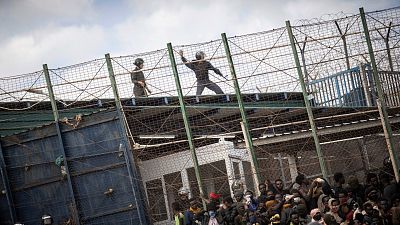

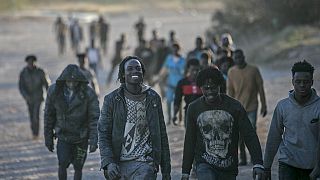
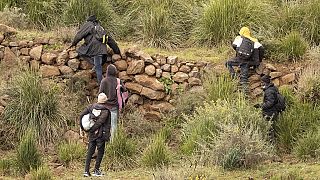
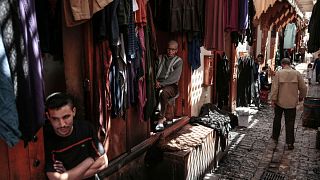

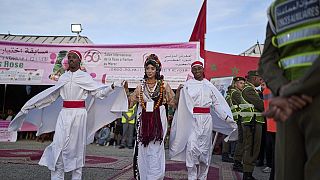



02:30
Morocco’s oases struggle to survive amid growing desertification
01:09
Dozens of migrants held for ransom by criminal gang in Libya released from captivity
Go to video
UN Migration Chief warns against ignoring root causes of migration
Go to video
Nearly 200 migrants intercepted off the coast of Senegal
01:25
Greece blocks asylum claims after surge in migrant arrivals
01:08
Spanish police reveal Jota was driving above speed limit when he crashed